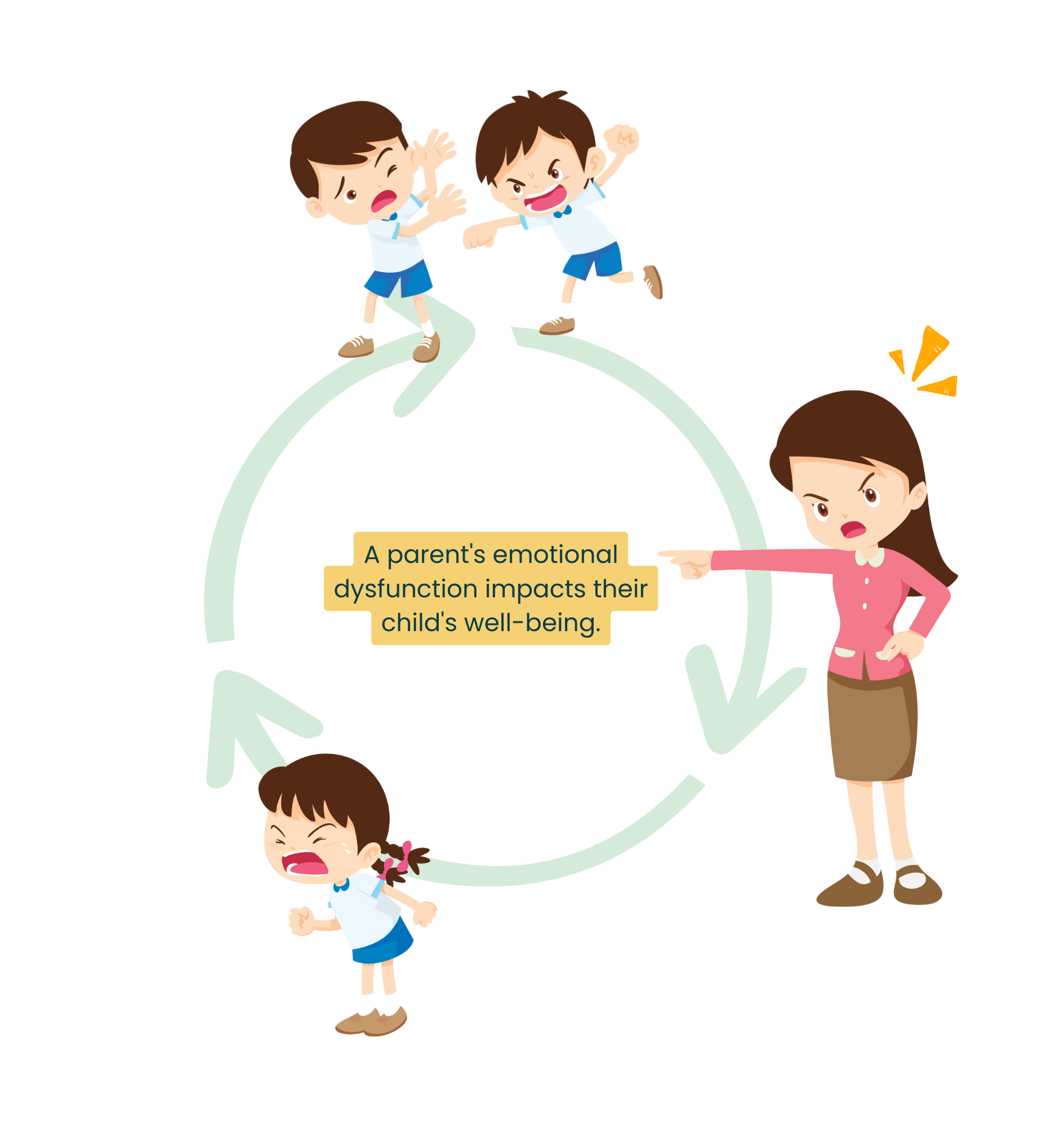Explore the Curious Neuron parenting approach with emotional awareness, evidence-based insights, and leadership skills to build strong, resilient families.
What is the Curious Neuron approach?

Emotional awareness
Noticing when we could have acted or thought differently.

Responding vs. reacting
Pausing before reacting helps us respond thoughtfully.

The science behind emotions
Because understanding emotions boosts your confidence in parenting.
Parenting isn't about following a one-size-fits-all formula
We’re not teaching you how to parent your child; we’re teaching parents how to build self-awareness skills and helping them teach these skills to their children. It’s about gaining the flexibility to adapt, reflect, and grow alongside your child.
We Focus on the Parent, Not Just the Child
We know that parental well-being directly impacts the emotional development of your child. By focusing on self-awareness and emotional regulation, we empower you to reflect on your actions, understand your triggers, and make thoughtful decisions.

Learn
We know you're busy
so we make the science easy to understand and in your preferred format.
Articles
We summarize research to answer your parenting questions and offer practical solutions
Read ArticlesPodcast
We interview researchers to help parents understand their emotions and their children's.
Listen to the PodcastFree Tools
Enhance your emotional intelligence as a parent, and supporting your child’s emotional growth.
View Resources
Practice
The Reflective Parent Club
We support you in applying these practices at home through weekly parent meetings, expert Q&As, and a library of curated content (worksheets, webinars, and audio).
Trusted by Clinicians
I worked with Dr. Hovington for years, having her evaluate & counsel our patients, but now as a referral source for all. Being that I have a very large pediatrics practice, it has been extremely important to avail myself of all that could enhance & simplify the lives of my young families & their children…Dr. Hovington’s conscientious, professional endeavour, Curious Neuron, does just that!
 -Dr. Derek da Costa,
-Dr. Derek da Costa,
Physician MD, Chief Medical Advisor
Why are emotional regulation skills so important?
As parents, we aren’t taught how to cope with emotions.
As a result, we struggle to model healthy emotional coping strategies for our children.
Without seeing these skills in action, children may experience more behavioral challenges as they learn to navigate their own emotions.
By developing these skills ourselves, we can foster a more balanced and connected family environment.

“I wanted to create a trusted, science-based resource for parents, with easy-to-understand content that focuses on emotional well-being.”
Curious Neuron
is here to help you:
- Learn to cope with parenting challenges.
- Find science-backed parenting guidance through content.
- Access resources to support your parenting wellness.
With these tools and the Reflective Parenting club, our goal is to Improve your self-awareness through content, online tools, guided reflections and community support.
Aliquam non lectus id purus cursus porta. Nullam vel felis elementum, ornare magna non, feugiat ex. Phasellus erat ligula, laoreet sit amet magna vel, aliquet facilisis libero.
What is emotional regulation?
Emotional regulation is the ability to recognize, understand, and manage emotions in oneself and in interactions with others.
For Parents:
Parents can regulate emotions by recognizing their feelings, responding instead of reacting, and modeling healthy emotional behaviors. This creates a calm, supportive environment for children.
For Children:
Children learn to identify emotions and develop strategies to manage their feelings, such as deep breathing or using words to express themselves.
Why is it Important?
Emotional regulation strengthens relationships, reduces stress, builds resilience, and equips children with lifelong skills for success.



